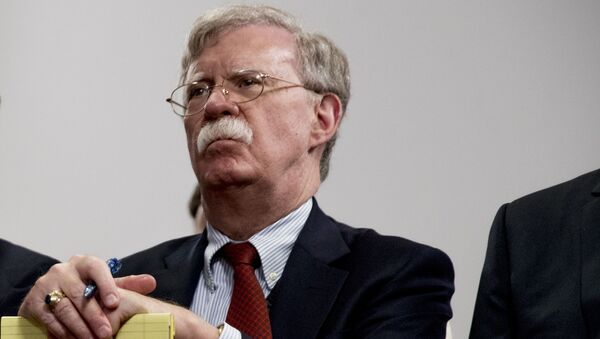In a letter to the general counsel for the US House of Representatives, Douglas Letter, Cooper emphasized the importance of the appearance of Bolton before the Three House committees that are leading the Trump impeachment process, but he put a condition on the appearance that a federal court must determine whether his client is obliged to give testimony.
“[Bolton ] was personally involved in many of the events, meetings, and conversations about which you have already received testimony, as well as many relevant meetings and conversations that have not yet been discussed in the testimonies thus far,” Cooper wrote in letter to the House, according to Politico.
Leaders of the three house committees responsible for the impeachment process on Thursday announced that they would not subpoena Bolton, considering his posture a delay tactic. The House said that it has no interest to issue a subpoena to Bolton, who was due to appear for a deposition on Thursday, as the impeachment process would become too drawn out.
Cooper turned down the House’s call of his attempt to challenge the subpoena in court a ‘delay tactic to avoid testifying’ ansd considered it to have been coordinated with the White House.
“If the House chooses not to pursue through subpoena the testimony of Dr. Kupperman and Ambassador Bolton, let the record be clear: that is the House’s decision,” The lawyer reportedly wrote in his letter.
The attorney argued that a previous federal district court ruling concerning ‘absolute immunity’ for White House aides pointed out exceptions for senior officials responsible for national security matters, a label that, he reportedly said, may be applicable to Bolton.
“Here, unlike McGahn [former White House Counsel], information concerning national security and foreign affairs is at the heart of the committees’ impeachment inquiry and it is difficult to imagine any question that the committees might put to Dr. Kupperman that would not implicate these sensitive areas,” Cooper wrote, quoted by Politico.


